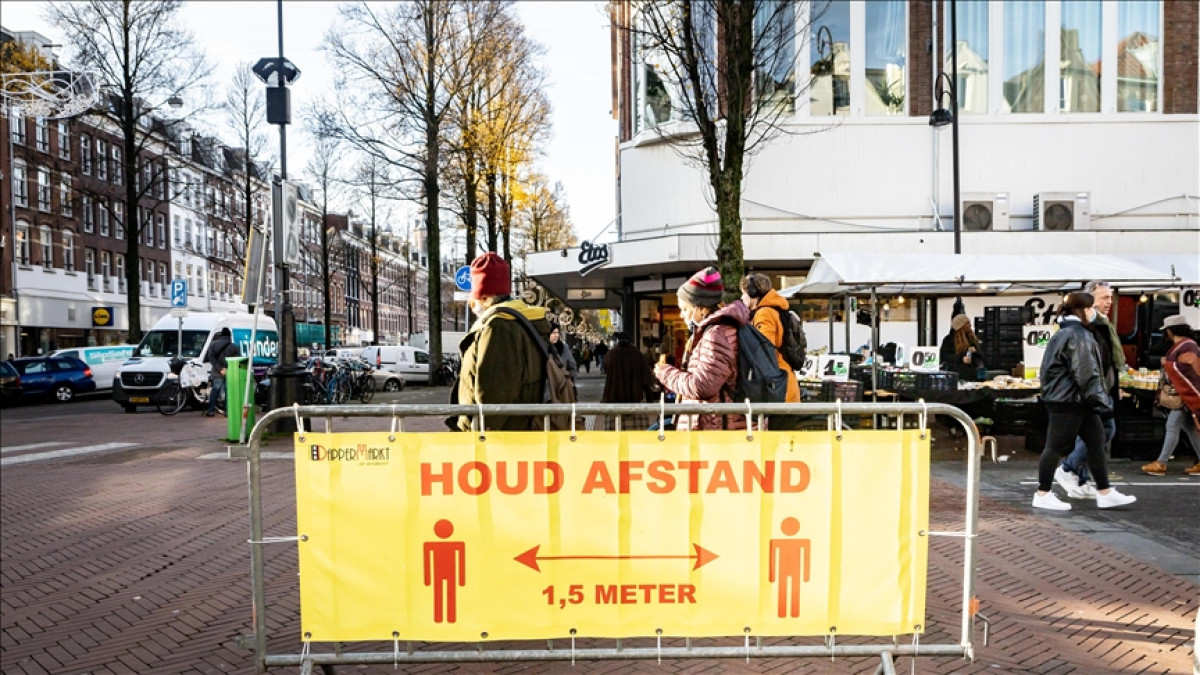
Upcoming winter may reverse downward trend in global COVID-19 cases
While the weekly decline in COVID-19 cases and deaths continues worldwide, the possibility of an increase in the number of virus-related cases with the approach of winter is causing concerns, El.kz cites Anadolu.
Coronavirus cases that increased at certain intervals until the end of July this year across the world have been on a downward trend since the beginning of August.
In the latest weekly COVID-19 report published by the World Health Organization (WHO), it was announced that the number of cases worldwide on Sept. 5-11 fell by 28% compared to the previous week.
In the same period, the number of virus-related deaths decreased by 22%.
With the decline in the case toll in the last week, the weekly global COVID-19 case numbers saw the lowest level since March 2020.
The WHO explains that the decrease in global cases is due to countries reducing their testing and monitoring capacities, while the drop in fatalities is attributed to the fact that new variants of the virus have a less lethal effect.
Highest possibility of infection during winter
WHO spokesperson Margaret Harris told Anadolu Agency that COVID-19 is not a seasonal virus.
This virus can spread to the human body every season, but when the weather gets colder, people tend to spend more time indoors, she warned, stressing that this is why the risk of transmission of the virus is higher in winter.
Asked if WHO has a preliminary preparedness plan for this possible rise, Harris said that based on experience the organization has gained during the 32-month period of the pandemic, it has also prepared guidelines on what countries should do in the event of a possible increase in cases.
Harris stressed the necessity to increase virus-monitoring as well as the number of tests that many countries have recently decreased.
She also underlined the importance of vaccination, advising countries to ensure that they have “100% vaccination” in “high-risk groups" such as "older people, health care workers, people with underlying conditions.”
During winter, “hospitals are overwhelmed” as the cold weather causes a radical increase in the case number of all kinds of illnesses, not just COVID-19, Harris said, noting: “You must increase the capacity in your hospitals.”
“That means supporting your health workforce, making sure you've got enough nurses, doctors, ancillary care workers, ambulances, because the threat to your system is not just COVID-19, it is all illness,” she warned.
“Now is the time to really do that work,” she added.
Winter-related warnings by other officials
WHO Director-General Tedros Ghebreyesus said in a statement on Sept. 14 that the world has never been in a better position to end the pandemic.
“We see the end, but we are not there,” he said.
There should be no stagnation in fighting the deadly virus, Ghebreyesus warned, calling on countries to expand their vaccination capacity against the rising infections of the deadly disease.
WHO Director for Europe Hans Kluge also predicted a rise in cases with the onset of winter, noting that they expect the total number of COVID-19 cases to reach 250 million across Europe as the weather gets cold.

